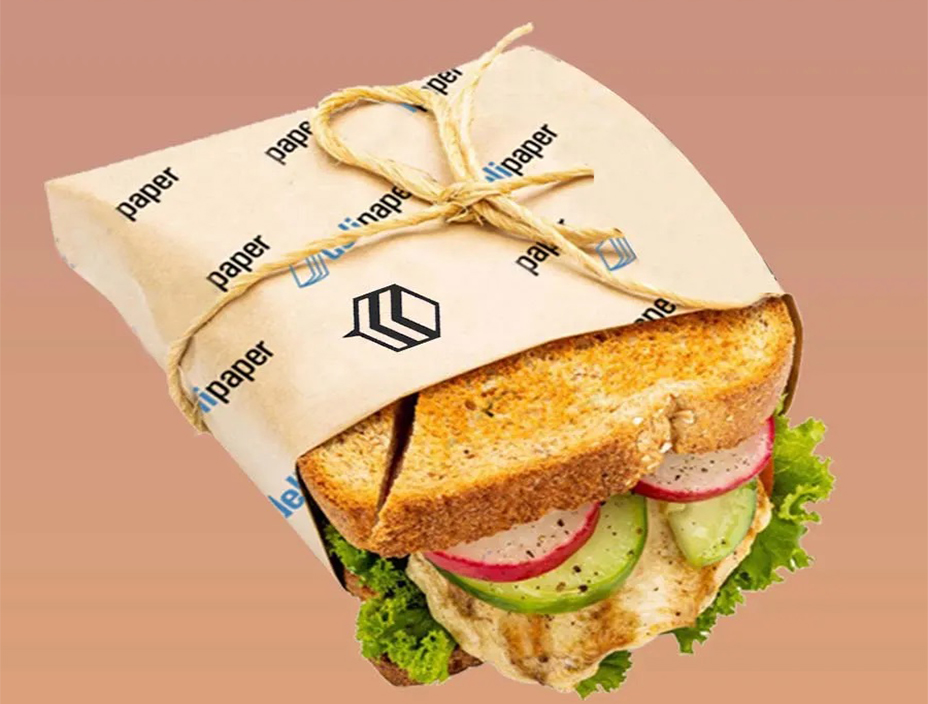Food wraps play role in keeping food fresh and safe for consumers. In recent years, shift toward eco-friendly options has caught attention of many sellers and buyers. Eco wraps provide alternative to traditional plastic wraps, which bring multiple environmental risks. This article looks at what eco wraps are, why demand for them is growing, and how businesses can make choices to fit this trend while meeting operational needs.
Eco wraps refer to wrapping materials made from natural or biodegradable sources that minimize harm to environment. Examples include wax paper, greaseproof paper, compostable films, and biodegradable cellulose wraps. These wraps differ from plastic films, which take long time to degrade and often cause pollution.
Materials like wax paper are treated with waxes to resist grease and moisture but remain compostable. Greaseproof papers provide barrier protection without plastic coatings. Compostable films are made to break down under environmental conditions without leaving residues.
Eco wraps offer responsible solution for food protection, supporting shift toward sustainable food services. They also meet consumer expectations around reducing plastic waste in wrapping. By using such materials, sellers can maintain food safety while reducing environmental footprint.
Traditional food wraps, specially made of plastic, create challenges for environment. Single-use plastic films do not degrade without problems, causing large amounts of non-degradable waste. Waste regularly ends up in oceans, harming marine life and ecosystems, or on landfills, which it persists for years. Also lengthy degradation instances, plastics can release microplastics and toxic materials, harming soil and water pleasant. Many communities and governments impose restrictions or bans on single-use plastics to fight such problems.
Due to these concerns, food sellers are under pressure to find alternatives to reduce pollution and align with laws and consumer values. Disposable wraps made of biodegradable or compostable materials offer step toward easing environmental burden. Move is not only green but also necessary for long-term health of ecosystems.
Choosing wraps brings many advantages. These substances are designed to break down certainly in compost or landfill conditions, lowering chronic waste. Sellers’ use of wraps like wax paper sheets can make certain food stay included while helping environmental goals. Besides environmental profits, those wraps preserve or improve food safety. Products like greaseproof paper help keep oils and moisture contained, retaining food’s freshness and appearance.
Some eco wraps help with heat resistance, useful for hot food or baked items . Financially, eco wraps may also appear more steeply-priced at everything, but financial savings come from meeting market demand for sustainable goods. Consumers pick manufacturers reflecting care for environment, which could increase loyalty and income through the years. Using eco wraps also enables sellers follow policies, fending off penalties or lack of client agreement. Overall, this preference balances safety, price.
Several forces the adoption of eco wraps. Local food businesses and startups see sustainability as part of brand identity. Delivery and takeout services want wraps maintaining food quality yet meeting environmental standards. Government incentives and restrictions on plastics encourage businesses to switch to natural or compostable wraps. Consumers, informed by social media and news, push for greener options and reward sellers who make changes.
Plastic bans in various regions accelerate demand for alternatives. Eco-labels, certifications, and branding on wraps help customers recognize responsible choices. Trend is strong in urban and younger markets, where environmental awareness is higher. Sellers who monitor these trends early take lead in customer preference. Adopting wraps builds reputation and connects with modern consumer values.
Customization allows businesses combine sustainability with unique branding. Custom printed wraps show logos, messages, or art that communicate more than just food protection. Branding on wraps forces identity across many customer points. Print technology advances allow sellers choose colours and designs on natural materials without heavy chemical use or plastic inks. Texture and finish options allow distinctive looks fitting brand style, from modern to rustic.
Custom wraps also serve as marketing tools, sharing eco commitments or special offers. These creative wraps encourage customer engagement beyond taste alone. Brands like WaxPapersHub help food sellers create personalized and responsible wrapping solutions. Their service allows owners balance design, function, and green materials effectively.
Selecting eco wraps depends on type of food sold, handling conditions, and target customers. Heat or grease resistance may be crucial for fried or warmed foods, making wax paper or greaseproof options suitable. For fresh produce or sandwiches, breathable materials prevent sogginess. Businesses should consider durability and compliance with food safety rules. Some wraps perform better in freezing or microwaving. Cost must fit budget while maximizing benefit.
Partnering with experts like Custom wax paper simplifies selection. They guide sellers to materials and printing options tuned for practical use and environmental values. This advice cuts trial errors and supports smooth integration into daily use.
Switching to eco wraps requires planning. Businesses should start by testing materials to see how they perform with specific items. Educating staff about handling and disposal can improve success. Cost handling involves considering quantity discounts and buy-in from suppliers experienced in sustainable products. Transitioning gradually eases impact on cash flow and operations.
Wholesale custom sandwich paper offers support in sample provision, order fulfillment, and troubleshooting, helping sellers implement new wraps while keeping product quality consistent. Sellers benefit from transparent supply chains and materials meeting certification standards. Knowledge reassures customers and regulatory bodies.
Eco-friendly food wraps are vital as parts of food brand aim to reduce plastic waste and meet consumer expectations. Benefits in food protection, environment, and brand image make such wraps smart choices for today and future. Custom paper provides options for wax paper and other sustainable wraps supporting sellers and startups adapting to these trends. Choosing well-designed, responsible wraps makes business operations cleaner, greener, and aligned with growing market needs.

